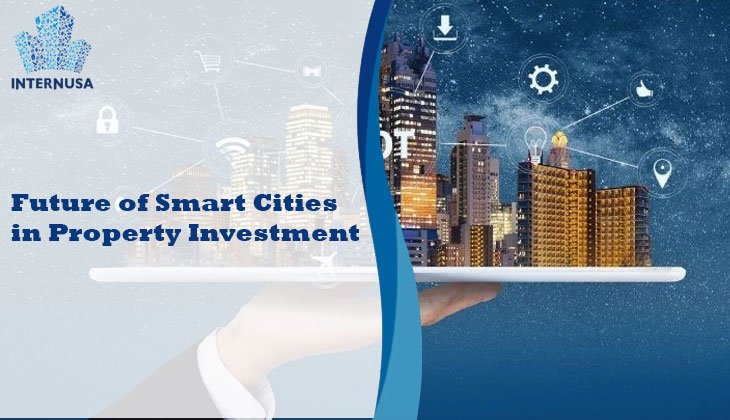Future of Smart Cities in Property Investment
Smart cities are no longer a futuristic fantasy—they’re fast becoming the new standard in urban development. With the integration of technology, sustainability, and data-driven decision-making, smart cities are transforming how we live, work, and invest. For property investors, this shift is more than a trend—it’s a golden opportunity.
So what does the rise of smart cities mean for the future of property investment? Let’s explore how innovation is reshaping the real estate landscape and where the smartest investments will be made.
What Are Smart Cities?
A smart city uses digital technologies and data analytics to enhance the efficiency of urban services and improve the quality of life for its residents. These cities integrate Internet of Things (IoT) sensors, artificial intelligence, cloud computing, and big data to manage everything from traffic and energy to waste and public safety.
Smart cities aim to be:
Sustainable – reducing carbon footprints and improving environmental management.
Efficient – optimizing public transport, utilities, and urban infrastructure.
Connected – offering high-speed internet, real-time services, and responsive governance.
Why Smart Cities Matter for Property Investors
1. Higher Demand for Tech-Enabled Properties
As cities become smarter, so do their residents. People now expect smart features in their homes and workplaces—automated lighting, security systems, smart thermostats, and integrated building management systems. Properties equipped with these features are commanding higher prices and rents.
2. Better Urban Planning = Higher Asset Value
Smart cities use data to plan infrastructure with precision. This leads to less congestion, better access to public transport, and more green spaces—all of which boost the desirability of real estate in those areas.
3. Government Backing and Incentives
Governments worldwide are heavily investing in smart city initiatives, offering incentives to developers and investors. From tax breaks to fast-track permits, these perks reduce risk and increase return on investment (ROI).
4. Long-Term Sustainability and Stability
Smart cities are designed for the future, making them more resilient to economic and environmental shocks. For investors, this means more stable property values and lower risks over time.
Key Features That Attract Property Investors
Smart cities have unique characteristics that make them hotspots for real estate investment:
✅ Smart Infrastructure
This includes digital electricity grids, autonomous transport networks, and smart water systems. Properties located near such infrastructure benefit from higher efficiency and lower utility costs.
✅ Green Buildings and Energy Efficiency
Smart cities encourage eco-friendly construction—buildings with solar panels, rainwater harvesting, green roofs, and energy-efficient systems. These properties are not only good for the planet but also enjoy tax incentives and higher tenant demand.
✅ High-Speed Connectivity
From fiber-optic internet to 5G networks, connectivity is crucial. Work-from-home professionals, tech companies, and remote learners all prioritize areas with seamless connectivity—driving up property values.
✅ Digital Amenities
Smart parking, facial recognition access, app-controlled elevators, and contactless delivery systems are becoming standard features. Properties that offer these features are more attractive, especially in post-pandemic cities.
Global Examples of Smart Cities Leading Property Trends
🌐 Singapore
Singapore is often ranked as one of the smartest cities in the world. With its Smart Nation program, it integrates AI, IoT, and green building standards. The real estate market thrives here due to high demand for efficient, well-connected housing.
🌐 Barcelona, Spain
Barcelona combines historic charm with futuristic tech. It uses data to manage traffic, waste, and energy. Smart buildings and coworking spaces are booming, attracting tech workers and investors.
🌐 Dubai, UAE
Dubai’s Smart City project includes autonomous transport, blockchain-based property records, and AI-driven public services. It has created a surge in demand for luxury smart homes and commercial buildings.
🌐 San Diego, USA
San Diego leverages smart lighting, traffic systems, and sustainability efforts to boost livability. Neighborhoods with smart infrastructure see faster property appreciation.
Investment Opportunities in Smart Cities
🔹 Residential Real Estate
Smart homes and green apartments are on the rise. Millennials and Gen Z, the next big wave of homebuyers, prioritize sustainability and tech-readiness.
🔹 Commercial Real Estate
Smart offices, business parks, and tech campuses are in demand. Tenants want smart security, high-speed internet, energy efficiency, and smart meeting rooms.
🔹 Mixed-Use Developments
Integrated projects that blend living, working, and leisure are booming. Investors benefit from diverse income streams and higher occupancy rates.
🔹 Smart Warehouses & Logistics
With the rise of e-commerce, smart logistics hubs with automated systems and IoT tracking are a smart bet. These are crucial in last-mile delivery within smart cities.
Challenges to Consider
While the future is bright, smart city investments come with their own challenges:
High Initial Costs: Smart infrastructure and tech-equipped buildings require significant upfront investment.
Technology Obsolescence: Rapid tech evolution can make current systems outdated quickly.
Data Privacy and Security: With more sensors and data collection, privacy concerns and cybersecurity risks must be managed.
Regulatory Uncertainty: Not all cities have clear regulations or zoning policies for smart tech integration.
The Road Ahead: Trends to Watch
🚀 AI in Real Estate
AI will play a growing role in predictive property management, pricing, and market analysis—helping investors make smarter decisions.
🌱 Net-Zero Buildings
Expect more demand for buildings that produce as much energy as they consume, driven by carbon-neutral goals.
🛰️ Digital Twin Cities
Smart cities will adopt digital twins—virtual replicas of the urban environment to simulate changes, improve planning, and enhance services.
🏙️ Proptech Startups
Technology companies that specialize in smart property solutions (Proptech) will continue to disrupt and transform how property is bought, sold, and managed.
The future of property investment lies in smart cities—where digital innovation, sustainability, and real estate converge. These cities aren’t just reshaping how we live, but also how we invest. With the right strategy, early investments in smart urban areas can yield high returns and long-term growth.
As technology and urbanization continue to evolve, smart cities offer investors a rare combination: modern infrastructure, rising demand, strong policy support, and future-proof assets. So if you’re looking to invest in real estate with long-term value, keep your eyes on the cities that are getting smarter every day.







